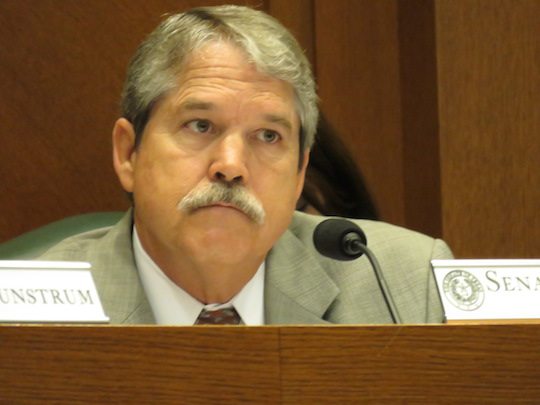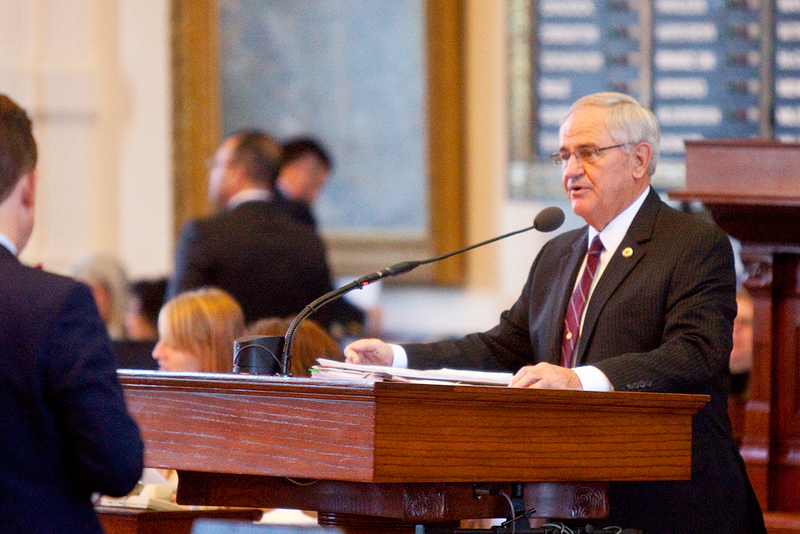
Lawmakers Debate Public School Takeover Bills

Above: Sen. Larry Taylor (R-Friendswood)
Lawmakers heard testimony today on bills designed to create a new school district, a so-called Opportunity School District, for struggling public schools.
Senate Bill 895 by Sen. Larry Taylor (R-Friendswood) would allow the state to take over schools from locally elected school boards if they have low state performance ratings for two consecutive years.
Mike Feinberg, CEO of the KIPP charter school chain testified in support of Taylor’s bill.
“We have a collective statewide responsibility to figure out how we turn around the cycle of despair in schools that have been failing year after year after year,” Feinberg said. “We need to give those schools to a superintendent who focuses on nothing but turnaround.”
The Opportunity School District would be comprised of failing schools from across the state.
Taylor’s bill would allow, but not require, schools in the district to be turned over to privately run charter operators. In the states where similar initiatives have been tried, Tennessee and Louisiana for example, that is precisely what has happened. The Recovery School District in Louisiana became the first all-charter district in the nation this school year.
Several witnesses criticized the measure that Texas uses to rate schools: the STAAR test.
“The only measure we’re using to make the judgment that these schools are failing and need to be turned over to state control is a test that you yourselves have called into question,” said Jim Nelson of the Texas Association of School Boards.
In Texas, school ratings rely mostly on test scores that closely track family income. Low-performing schools are more likely to have high rates of poverty, racial segregation and English language learners.
Several proponents of Taylor’s bill invoked Louisiana’s Recovery School District. Education reformers across the nation have called the Recovery School District an education miracle that has led to increased student achievement. But students in the school experiment have some of the lowest ACT scores in the nation, almost a decade after it began.
“The Opportunity School District is basically a business opportunity and that’s it,” said Patty Quinzi of the Texas chapter of the American Federation of Teachers. “This was a bill that was designed by the American Legislative Exchange Council [ALEC], which is co-chaired by private charter school managers.”
ALEC is a deep-pocketed organization of state legislators and corporate leaders that promotes free-market legislation across the country.
The committee also heard testimony on Senate Bill 669 by Royce West (D-Dallas). West’s bill would create an Opportunity School District similar to Taylor’s bill, but with several differences. For one, West’s bill would require teachers in the district to be certified. Taylor’s bill would not.
Several other education reform bills, including hot-button voucher and parent trigger bills championed by Lt. Gov. Dan Patrick, were voted out of the Senate Education Committee.
“These bills will provide much deserved ‘parental choice’ so students are not forced to go to a failing school or trapped in an undesirable educational geographic area because of their zip code,” Patrick said in a press release.
Both Opportunity School District bills were left pending in the committee.


